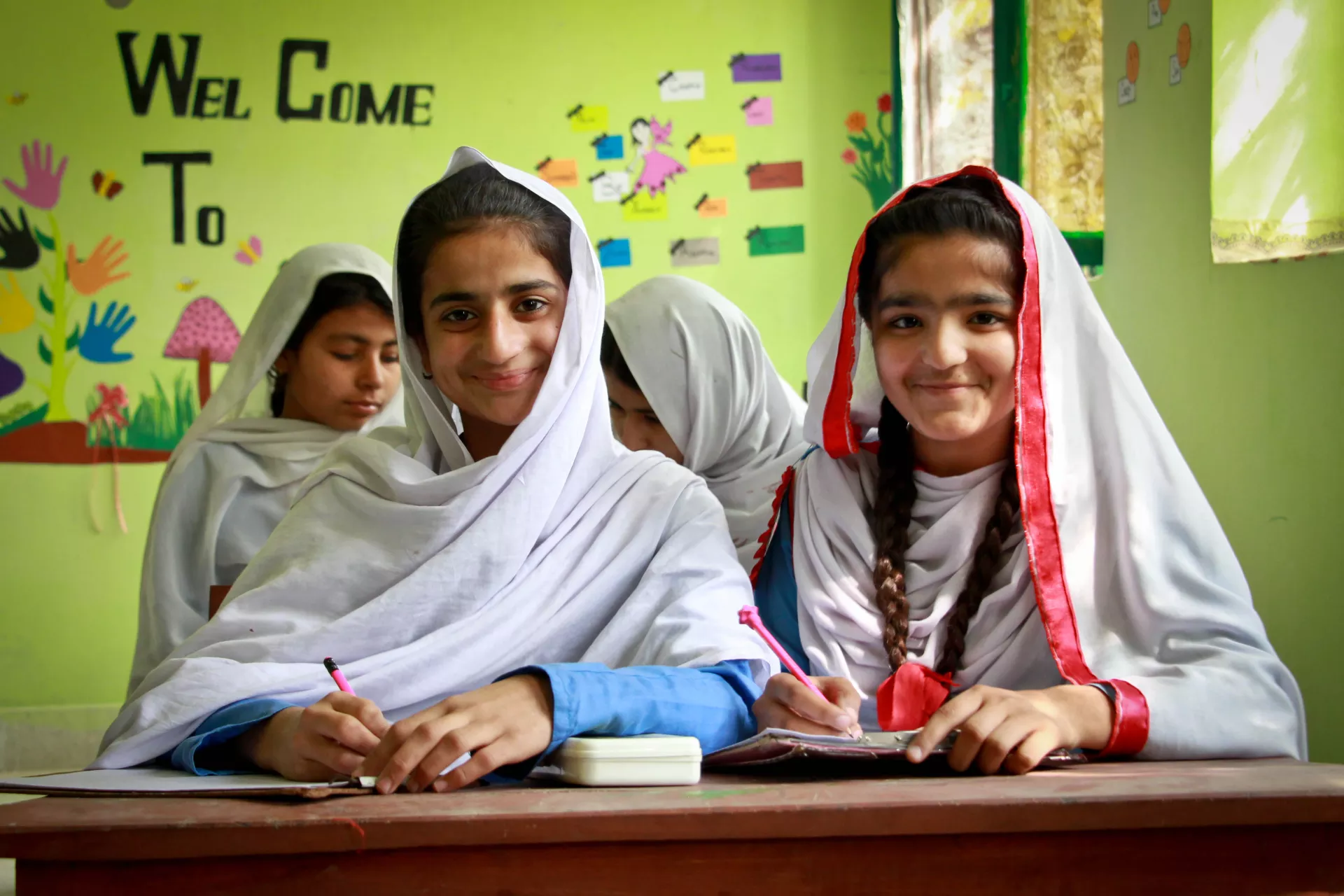
Photo : unicef
Balochistan has a huge land mass with less population as compared to other provinces and is strategically very vital as it borders with two neighboring states, Afghanistan, and Iran. The province also holds strategically and economically important share of maritime boundary of Pakistan, yet according to United Nations Development Program (UNDP) Balochistan has the lowest Human Development Index.
At present Balochistan is mired in various problems, but the education sector is the most prominent amongst them as it needs to be dealt with utmost urgency. Within the education sector, there are numerous challenges from infrastructure to students’ admission ratio. Still, among them the teachers training is the most serious and concerning matter for the provision of quality education.
Analyzing the case of Quetta only, there are 678 government schools for girls and boys. The number of schools look promising with respect to Quetta district that has the population of 2.5 million according to the 2023 digital census. However, the numerical strength of schools and children admitted in them do not define the quality of education, instead the availability of required teaching material and properly trained teachers are what makes the education sector stand out and contribute to enhancing the quality of education overall.
In November 2023, a field survey was done by the researchers of Balochistan Think Tank Network (BTTN) on the quality of education in Quetta district. In the field survey various aspects that act as an obstacle in the access to quality education were identified. Resultantly, the aspect of up-to-date teachers’ training is one where discrepancies have been found. According to the findings of this research, the teachers are not given priority for the training program based on merit, instead they are being selected through political references and bureaucratic nepotism. Surprisingly, such trainings should be provided to all the teachers which must equip them with modern day teaching needs, but due to inadequacy of funds and training resources only two or three teachers per school are given the opportunity to attend the training.
At the provincial government level, ‘Provincial Institute of Teachers Education (PITE) Balochistan’ is solely responsible to provide teachers training. PITE was established in 1997 with the assistance of Asian Development Bank (ADB). Till 2007 it was operating under government watch, but since 2008 under the directives of the Secretary of Education it has been working independently. PITE has a vision to improve the quality of Balochistan province through quality in-service teacher education.
However, to meet the needs of around 49000 government school teachers of Balochistan, it is impossible for one institute to effectively and efficiently train the whole lot. For an argument’s sake, if PITE just focuses on Quetta, it is still very hard to meet the criteria of meritocracy in conducting teachers training as 6700 teachers are performing their duties in the Quetta district alone, as per the data available in the last Balochistan Education Sector Plan (BESP).
Critical evaluation of our political elites’ behavior is evident that PITE is the only institute for teachers training and it is also being supported by and run in collaboration with the international funders such as UNICEF, European Union, Innovative Development Organization (IDO), World Bank and Education Management Information System (EMIS) technical team. This development reveals that the government’s attention is directed towards those matters which can be projected at the election campaigns, unfortunately education does not lie in that category.
Balochistan is often associated with the issues of insurgency and terrorism, but such issues are also a byproduct of the Balochistan’s political elites’ lack of will towards matters that have long term impacts, such as education. Education is the doorway to success and prosperity for any nation, but this phenomenon has become very hard for our political elite to understand, either because of their shortsightedness or because they are intentionally ignoring this vital domain of nation-building.
On-ground government has established schools, but the issue of well-trained instructors and tutors persists even in the provincial capital city of Quetta, let alone the whole province. Since the 18th constitutional amendment in April 2010, provinces have been given hold of various sectors and the education sector is one of them. But the 18th amendment was carried out without thoughtful consideration whether provinces had the required capacity to handle certain sectors on their own.
However, it is still not too late for political leadership of Balochistan to increase its involvement in the development of education sector because the current precarious situation of education in Balochistan reveals the intent of province’s political elites. Only a few independently operational NGOs cannot bring any sustainable change. Provincial government’s involvement is very necessary in getting things on the right track. Teachers’ training is one of the very vital components in achieving the goal of delivering quality education because unless and until teachers are trained according to modern educational needs, one cannot prepare a strongly knowledgeable youth.
